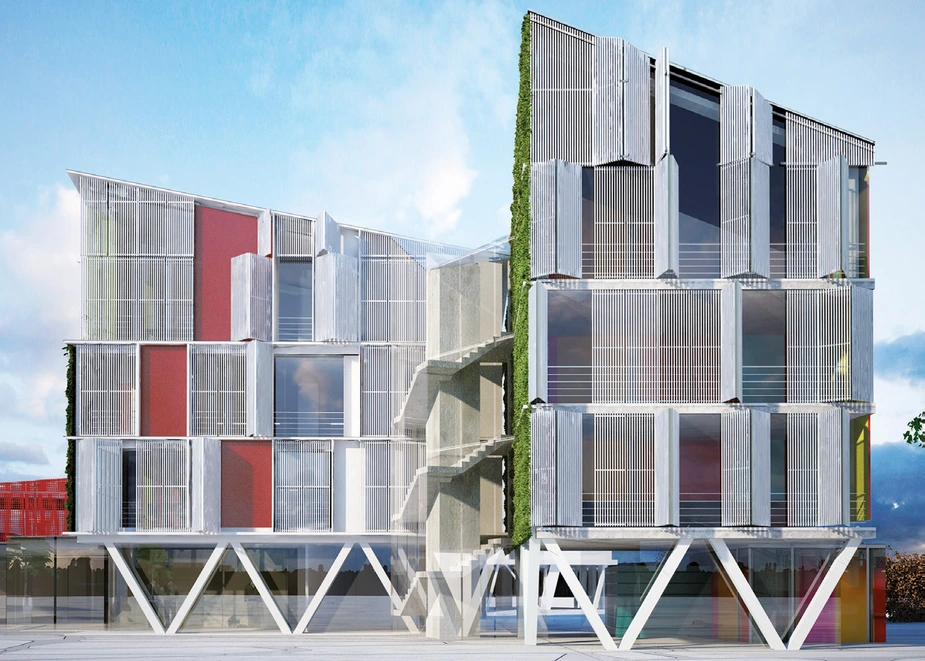When your carpet calls you an ambulance
Solutions from Adlershof for home automation and assistance systems
There is a growing demand for senior-friendly, intergenerational living and with that, a growing interest in home automation and assistance systems. Innovators in Adlershof are working on Ambient Assisted Living systems that guarantee high quality of life in old age.
”The home of the future will have to change with regard to equipment and standard,” says Berlin-based architect Klaus D. Krebs. Equipped with roboters and assistance systems, it will enable ageing tenants to live independently in their familiar surroundings. In creating 70 new housing units in Adlershof, The “Future Living Berlin” project will show that this can be achieved while keeping rents affordable. In cooperation with GSW Sigmaringen, the Krebs business group will build 70 new housing units in Adlershof. The solution is to link demographic aspects with energy efficiency, electromobility and a lot of information technology.
The project is singular in Germany. Low cost of energy is a prerequisite for being able to operate assistance systems while keeping rents low. Personalised ambient assisted living systems (AAL) gather and analyse data before transferring it to connected apps. Krebs cites the example of the intelligent toothbrush that measures blood pressure and other parameters and displays the results to an active mirror via wi-fi in real time. Elderly tenants get a morning check-up in their own bathroom and are reminded to take their medication. Krebs wants to create a technology is designed to adjust to the needs of its users. Should significant deviations in the data arise, users can decide whether they want to automatically forward their data to their physician. A sensor system in the ground can detect falls and forward them to a planned in-house service station. In order to advance the application of AL systems, the Krebs business group has initiated the development of a platform together with Fraunhofer institutes and other specialist firms. The aim is to develop interfaces and common standards and look into aspects of data protection.
Professor Alfred Iwainsky, chairman of the board of the Society for the Promotion of Applied Computer Science (Gfal), showcases assistance systems in a model apartment that work with minimal energy input. “Energy independent circuits for lighting and heating are easily adjustable to individual needs, and at low cost,” the professor explains. Wireless integration of many components like energy-independent light switches, door openers, smart beds and the water inlet of bathtubs, make for a more comfortable and secure living. He cites further advantages: “They also help keep the costs of care low as well as costs for modifying existing structures of an apartment.” Despite all these plus factors, application of such assistance systems is presently restricted to office blocks, airports and industrial facilities. Iwainsky concludes: “It will take some time until they expand to hospitals, nursing homes and private apartments.”
By Klaus Oberzig for Adlershof Special
